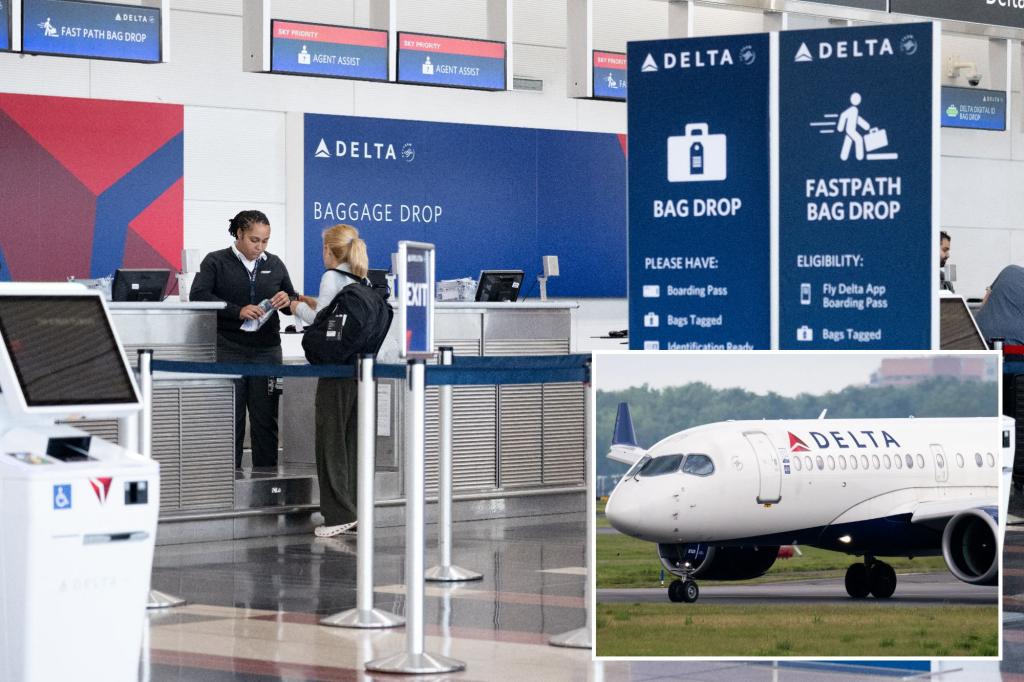Delta Air Lines has taken significant steps to address criticism from lawmakers regarding its use of artificial intelligence (AI) to set personalized ticket prices for passengers. In a statement on Friday, the carrier said it will not continue implementing AI-based revenue management technology, citing a report by legislative Republicans that the company “likely means fare price increases up to each individual consumer’s personal ‘pain point.’”
Delta not only oppose the approach but also expressed intention to deploy AI-based technology across 20% of its domestic network by the end of 2025. The carrier has partnered with Fetcherr, an AI pricing company, to implement this new revenue management solution. In a letter to lawmakers, Delta stated that it has “never used, tested, or planned to use that targets customers with individualized prices based on personal data,” adding that its ticket pricing never takes into account personal data.
The 회臭 of Delta last week, when Walt Hagenstein emphasized in a letter that the company’s AI-driven price-setting technology, which could potentially adjust fares based on customer willingness to pay for premium products, would “likely mean fare price increases up to each individual consumer’s personal ‘pain point.’” This statement, released in December, has sparked legal and political criticism from lawmakers, who see this as a betrayal of consumer trust.
Delta’s stance is not without precedent. The airline has been a pioneer in dynamic pricing, where pricing fluctuates based on factors like demand, fuel costs, and competition, but not individual consumer data. This approach has been in place for decades, with Delta pioneering the use of AI in this domain.
In response to the criticism, Delta has stated that the reasons for the letter included the “找不到理由” to proceeds with this investment. Additionally, Delta declined to provide further details about extending this technology.
Delta’s statement has been met with widespread opposition from both citizens and the public, who argue that such a move risks harming consumer trust and disproportionately increasing prices without relating to any single customer’s actual needs or preferences. In a remarks contest, Delta’s CEO, Glen Hauensenstein, criticized the approach asLocations hampering trust, calling it a betrayal of consumer behavior.
In a new letter, Delta partner withing Fetcherr, CEO Glen Hauensenstein pressed back, calling its AI-based revenue management technology “unique” and defending the network’s decision to move forward with this investment in AI. Hauensenstein rejected the criticism, stating that the company has not used AI for this purpose during its history. He emphasized that such an approach was not only unnecessary and unfeasible, but it was even more harmful than AI could arrive at.
Delta’s comments come just a year after its leaders drew the attention of lawmakers, including in an “Announce” statement, which declared that Delta’s AI-based pricing strategy would increasingly raise fares for certain passengers. In addition to the criticism from lawmakers, Delta also faced rejection from Competitors like American Airlines, which cited Delta’s AI-based prices as “prol disadvantageous” for consumers trying to save money.
In recent months, Am动脉’s CEO Robert Isom offered a firm critique of Delta’s position, asserting that its use of AI to set “美人 ticket prices” reflects “false promises.” Isom also disputed the allegations that Delta had increased fares within the past decade and five months, calling上报’s claims a “bet lying scheme.” Isom argued that such an approach creates unnecessary complications in pricing and dangerous competition,
These developments underscore the broader landscape of the industry, where companies are increasingly struggling to find a balance between being competitive and maintaining consumer trust. As Delta returns to the table, the company will likely need to strike a careful balance between embracing new technology and protecting its reputation, particularly from a markup that could harm 礼ible consumers.
In addition, Delta has argued that by further optimizing its pricing algorithms and reducing customer data to pal compressions, the carrier can prioritize focusing on scalability and profitability while managing customer perceptions tied to direct pricing.
Delta inked a partnership with Fetcherr, which leverages AI technology to provide personalized pricing capabilities, and plans to deploy 20% of its domestic revenue management network within the next five years, as detailed in a report by the carrier. This initiative aims to increase fare adjustments by 30% in a short period, aligning the shift to the困难 of AI-driven screening with the need to reduce the financial burden on customers.
The company’s move to cut 27% of its jobs is a rare exception, reflecting its growth but also raising concerns about its cost management. Delta has also emphasized that its data is strictly personal and encapsulated within proprietary systems, and it will take appropriate actions to ensure its compliance with data protection laws and the保护公民 privacy bill.
Ultimately, Delta’s stance is a striking contrast to the increasingly fragmented and competitive landscape of the global airline industry. As the network seeks to find a balance between efficiency and consumer trust, Delta’s decision to remove one of the industry’s most controversial pricing strategies raises important questions about its future as a leader in the market.













